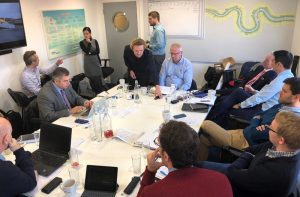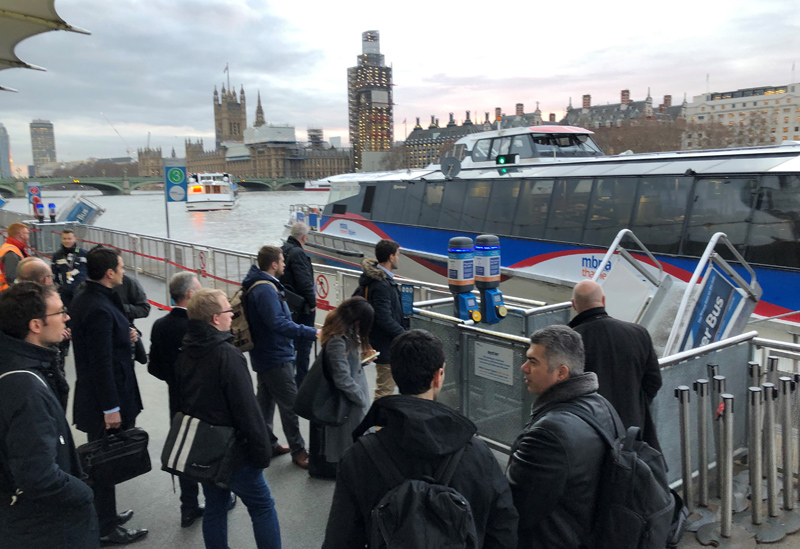In the TrAM project ship operators in Norway, UK and Belgium come together to solve a common goal; to create lower priced environmentally friendly ships.
This challenge to create solutions for low-cost environmentally friendly transport is reflected in public policy on national, European and global level. The European Commission’s 2050 Low Carbon Economy policy states that greenhouse gas emissions should be reduced to 80% below 1990 levels, through making low-carbon transition feasible and affordable.
This goal is a key starting point for the TrAM project, that bring together the complete value chain in both inshore and inland waterways transport and adds modularity competence from both the R&D sector and the industry. The project has received funding from the European Union’s Horizon 2020 research and innovation program.
– Two important goals in this project is to lower the cost of design and construction of electric vessel through modular production methods and making sure that system components and designs can be reused across vessel types. Putting together a diverse set of experiences and capabilities at a European level will ensure that we succeed, says TrAM Project Manager, Geir Hagen in Rogaland County Council’s ferry operator subsidiary Kolumbus.
Kolumbus has a strategy to move to zero emission for all its ferry routes and will co-finance the demonstrator in the TrAM-project. This will be a fully electric fast going passenger vessel that will operate the Stavanger-Hommersåk route from 2022.
Utilizing the similarities
The aim of zero emission transport is shared by the two other operators in the project; Thames Clippers and de Vlamsee Waterveg. Thames Clippers is facing both competition from other transportation modes and increasing pressure to move to more environmentally friendly alternatives than diesel engines for its operations into the city of London. De Vlamsee Waterveg is a major regulator of Belgium’s inland waterways and see modular zero-emission transport as the solution to regain competitiveness on economic and environmental levels.
 In December the operators and research partners met in London to discuss similarities and requirements for the three routes and vessels.
In December the operators and research partners met in London to discuss similarities and requirements for the three routes and vessels.
– The objective of the meeting was to establish a set of bottom-up analysis-based requirements for modular ship design. We are analysing both the ship itself and the infrastructure and environment in all three regions. Based on this analysis we will develop a concept approach for cost efficient modularisation and standardization of vessels, says Doctor of Engineering Christoph Juergenhake from Fraunhofer IEM.
In London the participant were able to investigate Thames Clipper’s operations in real life.
If we compare river Thames and the Stavanger route there are off course many differences, for example when it comes to required capacity, water draft, speed requirements and even national class regulation. But we also defined the similarities that we will take with us into the design process, says R&D/Sales Manager Edmund Tolo from yard Fjellstrand.
The TrAM project started in September 2018 and will be completed in 2022.
About the TrAM project
The TrAM-project (Transport: Advanced and Modular) is developing modular production methods for a more cost-effective construction of zero emissions vessels. The collaborating partners will use the advantages of scale and standardisation with customisation options, focusing on inshore vessels (operating coastal areas and inland waterways) with electric power systems. At least one demonstrator vessel will be physically built to operate a multi-stop commuter route into Stavanger, Norway. The demonstrator will be a fully electric fast passenger ferry with zero emission to air and sea. The project will also conduct two studies for the same type of vessel in River Thames, London and on the canals in Belgium to explore opportunities for similar zero emission vessels. This will pave the way for lower priced, environmentally friendly ships also in other routes in Europe.
TrAM H2020 project has received funding from the European Union’s Horizon 2020 research and innovation program under grant agreement No 769303.

